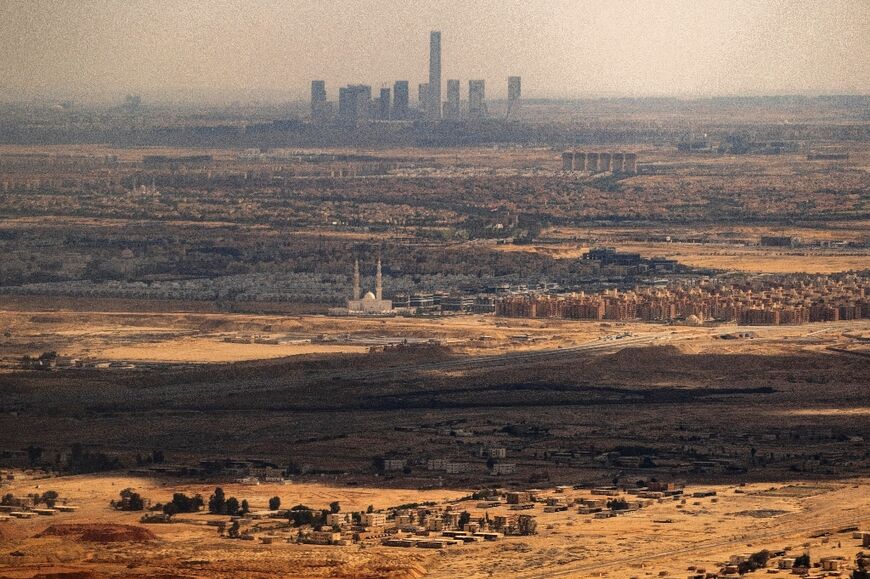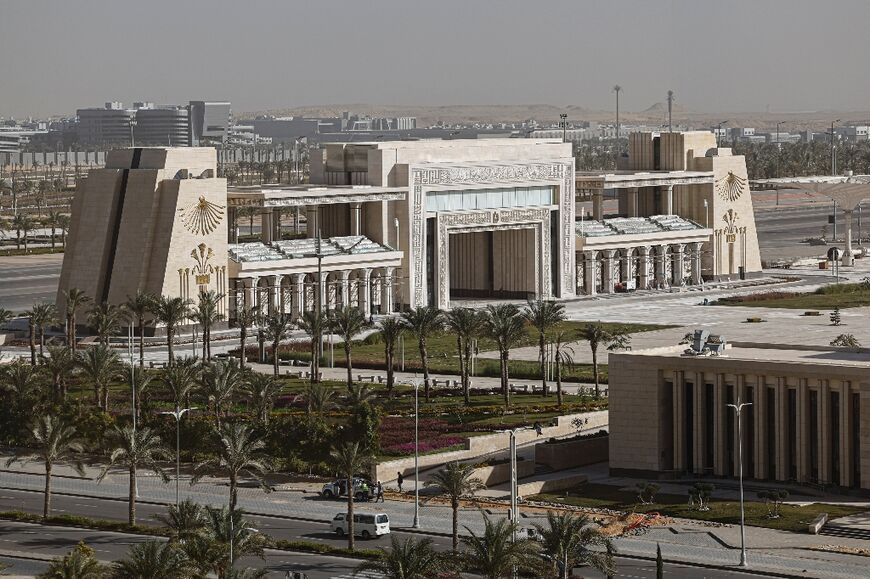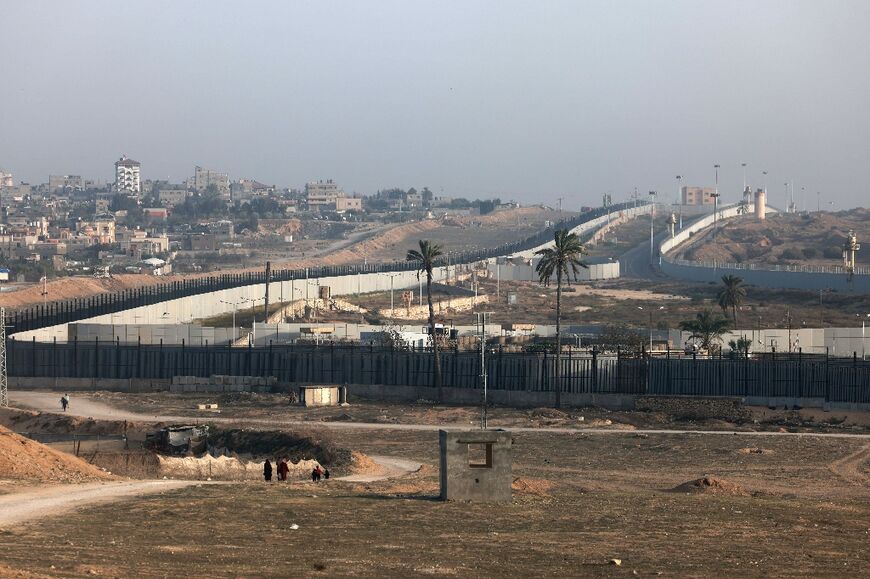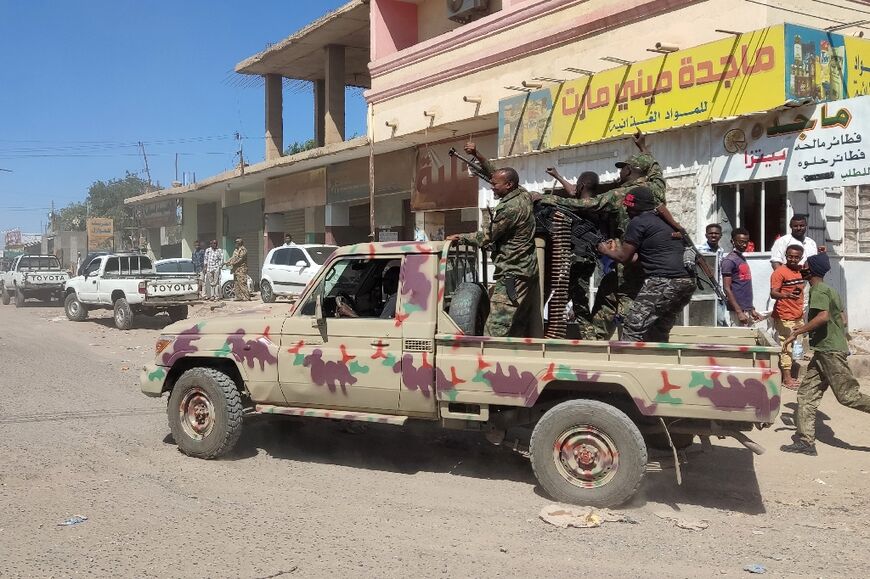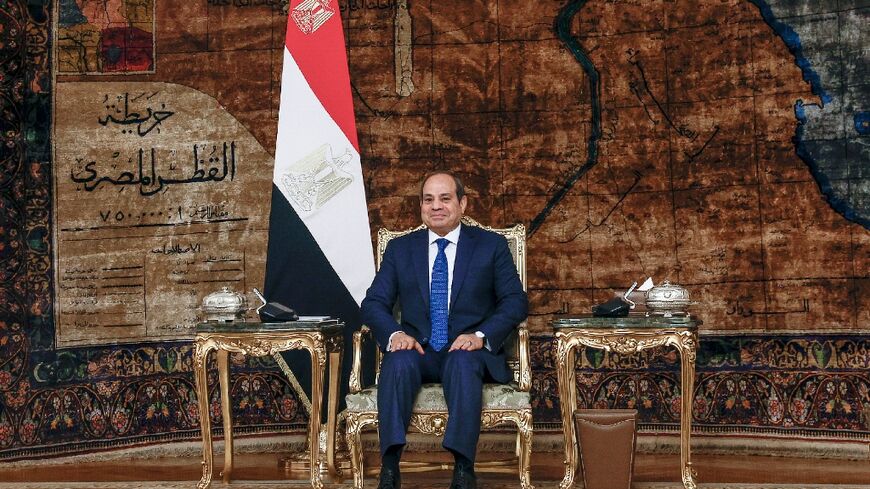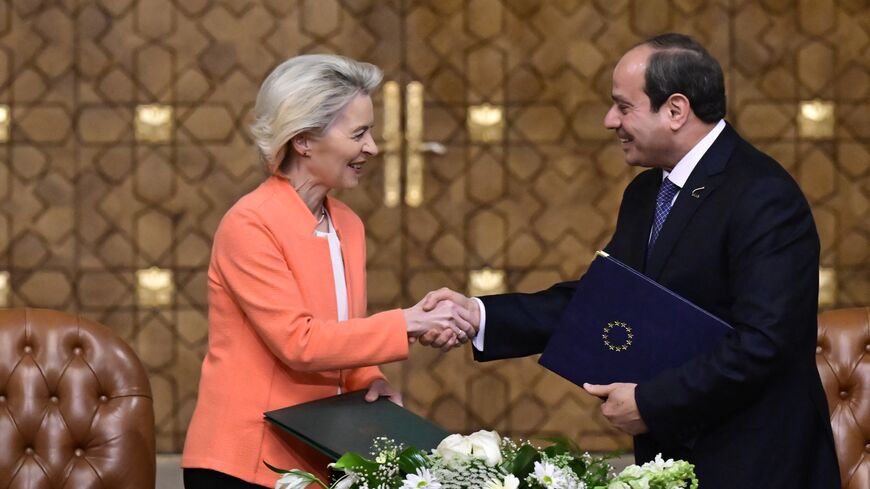Egyptian President Sisi sworn in for third term
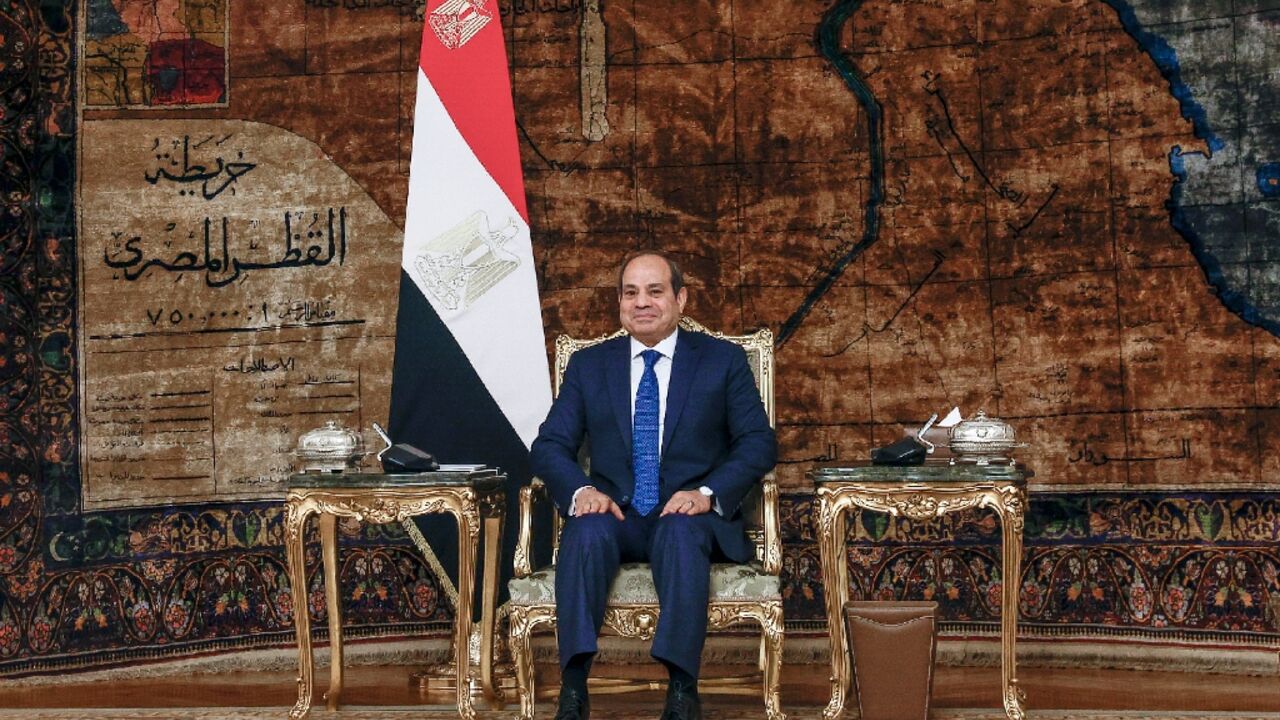
Egypt's President Abdel Fattah al-Sisi was sworn in Tuesday for his third term as leader of the Arab world's most populous nation.
In power for the past decade, the 69-year-old former army chief is now set to remain the head of state until 2030.
He starts the term flush with tens of billions in new loans and investments to fight a severe economic downturn, and at a time of heightened tensions with wars raging across its borders in both Gaza and Sudan.
Speaking before parliament, Sisi vowed to "remain faithful to my work, my eyes seeing only your interests and this country's".
As Egypt has battled a deep economic crisis and high inflation, he pledged "to realise the aspirations of the Egyptian nation to build a modern, democratic state".
Sisi won a December election with more than 89 percent of the vote against three relative unknowns after opposition challengers were sidelined or jailed.
The six-year term is set to be his last unless he again ushers through a constitutional amendment prolonging his tenure.
In his inauguration speech before parliament, Sisi said he was renewing his "vow to continue on the course to build the nation".
Then-defence minister Sisi rose to power on the back of mass protests against Islamist president Mohammed Morsi, who was deposed in 2013.
Sisi was elected president the following year and then again in 2018, both times with around 97 percent of the vote.
- New capital inaugurated -
Tuesday's oath also marked the inauguration of Egypt's New Administrative Capital, located in the desert east of Cairo, local media reported.
The $58-billion megaproject is the crowning jewel of Sisi's administration, which has poured billions into Egypt's infrastructure but has also been criticised for the massive debt-fuelled spending.
Cairo's foreign debt bill has more than tripled over the past decade to a record $165 billion, according to central bank figures, while foreign currency reserves stand at $35 billion.
For the past two years, Egypt has struggled to contain the fallout of the painful economic crisis that has seen the currency lose two-thirds of its value and inflation soar to a record 40 percent last year.
In the first quarter of 2024, however, Egypt received over $50 billion in loans and investment deals, which Cairo has said will ease dire foreign currency shortages and revitalise the economy.
The United Arab Emirates announced in February a $35-billion land development deal for Egypt's Ras al-Hikma, which the International Monetary Fund said could "help Egypt rebuild buffers to deal with future shocks".
A flurry of agreements followed, with the IMF more than doubling a $3-billion loan, and the European Union and World Bank also pledging billions in fresh financing.
The massive bailout has saved Egypt "from falling into the abyss", according to former deputy prime minister Ziad Bahaa-Eldin.
Financial services companies raised Egypt's credit ratings, as months-worth of blocked inventory began to be released into the import-dependent economy.
But inside the country of 106 million people, two-thirds of the population struggle to maintain their livelihoods, having lived on or below the poverty line even before the current crisis.
- Gaza and Sudan wars -
Pundits have speculated about an impending cabinet reshuffle to help usher in reforms, as Cairo faces multiple challenges.
Egypt has served as a mediator in the Israel-Hamas war raging for almost six months in Gaza, and has been the main conduit for aid trucks which pass through its Rafah checkpoint.
It has also allowed in half a million Sudanese refugees in the nearly one-year-old war raging there between the army chief and the leader of the main paramilitary force.
Parliament speaker Hanafy al-Gebali praised the administration's role in responding to "the bloody events taking place in the Gaza Strip in our sister state of Palestine" and for "allowing our Sudanese brothers to flee into Egyptian lands".
Cairo -- a key US ally that receives billions in American military aid -- has walked a diplomatic tightrope on the war in Gaza.
It has accused Israel of impeding humanitarian aid for Palestinian civilians but been at pains to maintain the region's oldest peace treaty with Israel, signed in 1978.
Across its Gaza border, 1.5 million mostly displaced Palestinians are sheltering in the city of Rafah, hemmed in by the Egyptian border and fearing an Israeli ground invasion.




